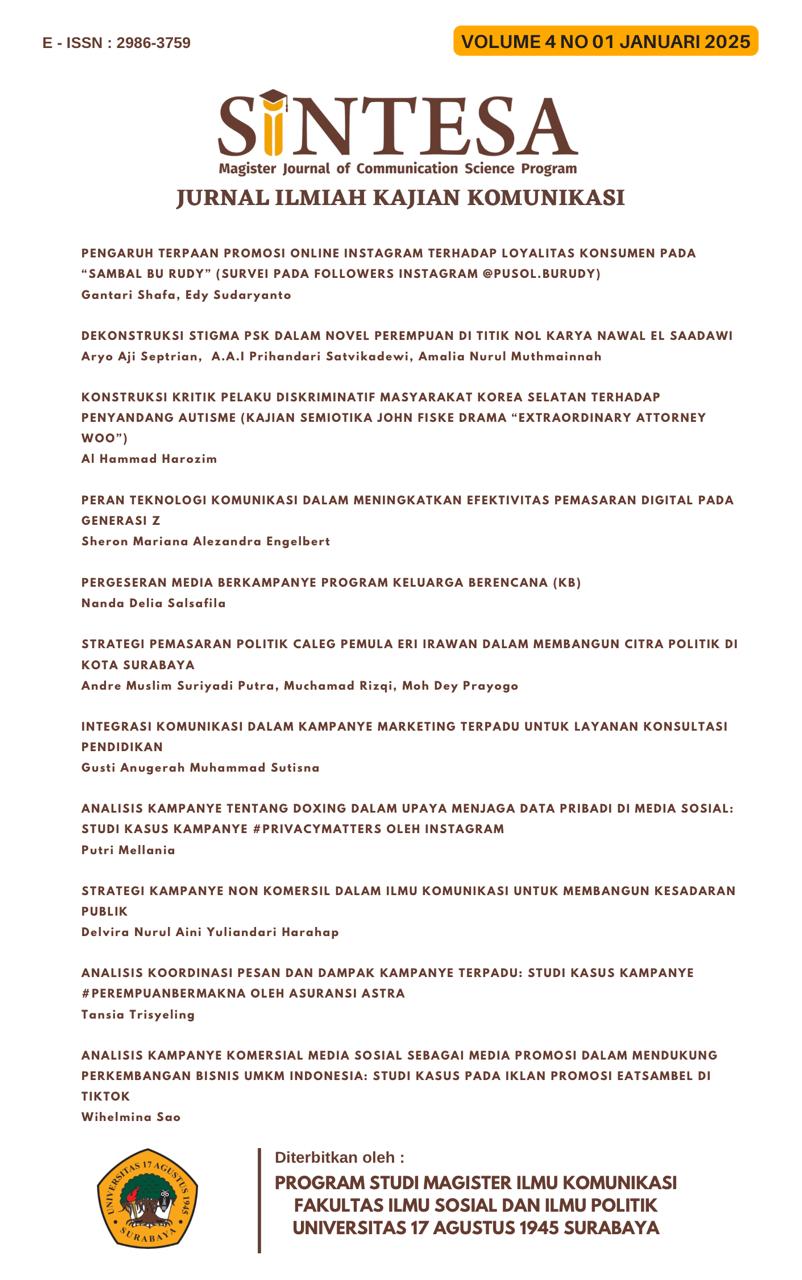INTEGRASI KOMUNIKASI DALAM KAMPANYE MARKETING TERPADU UNTUK LAYANAN KONSULTASI PENDIDIKAN
DOI:
https://doi.org/10.30996/sintesa.v4i01.12650Abstract
Improving the quality of integrated marketing communication has become one of the main priorities for educational consultants in facing the challenges of globalization and rapid technological development. This study aims to explore the role of data-driven, empathetic, and technology-based communication strategies in enhancing client satisfaction and trust in the services provided by educational consultants in
Surabaya. The research uses both quantitative and qualitative approaches through surveys, in-depth interviews, and literature analysis. Fifty respondents, consisting of individual clients and educational institutions, participated in this study. The results indicate that the majority of clients appreciate the data- driven approach used by educational consultants, with 75% of respondents feeling assisted in making educational decisions through the use of statistical data and current trends. Additionally, the empathetic approach has been shown to significantly contribute to client satisfaction, with several respondents reporting positive experiences when consultants demonstrated empathy in communication. Technology also plays an important role in the effectiveness of communication. Sixty-five percent of clients stated that the use of digital platforms, such as educational consultation applications and webinars, made it easier for them to access relevant information efficiently. These results highlight the importance of integrating technology into the integrated marketing communication strategy to strengthen the relationship between consultants and clients. Factors such as message clarity, response time, and information transparency were identified as key determinants in building trust and long-term relationships with clients. Consultants who can convey messages clearly and promptly are able to create a satisfying experience for clients, thereby increasing their loyalty to the educational consulting services. This study makes an important contribution to the marketing and communication literature, especially in the context of education. The findings are not only relevant for educational consultants but also for other marketing practitioners who wish to adopt an integrated communication approach to improve their service effectiveness. The conclusion emphasizes that effective communication requires a combination of data- driven approaches, empathy, and technology to meet client expectations in the digital era. Thus, this study offers practical insights that can be implemented by educational consultants in designing better communication strategies. For future research, it is suggested to expand the scope of the study by involving more respondents from various cities and institutions to obtain more comprehensive results. This is expected to provide a broader understanding of the dynamics of integrated marketing communication in the education industry in Indonesia.
Keywords: Marketing Communication, Client Satisfaction, Technology Communication, Marketing Campaign, Educational Consultant.














